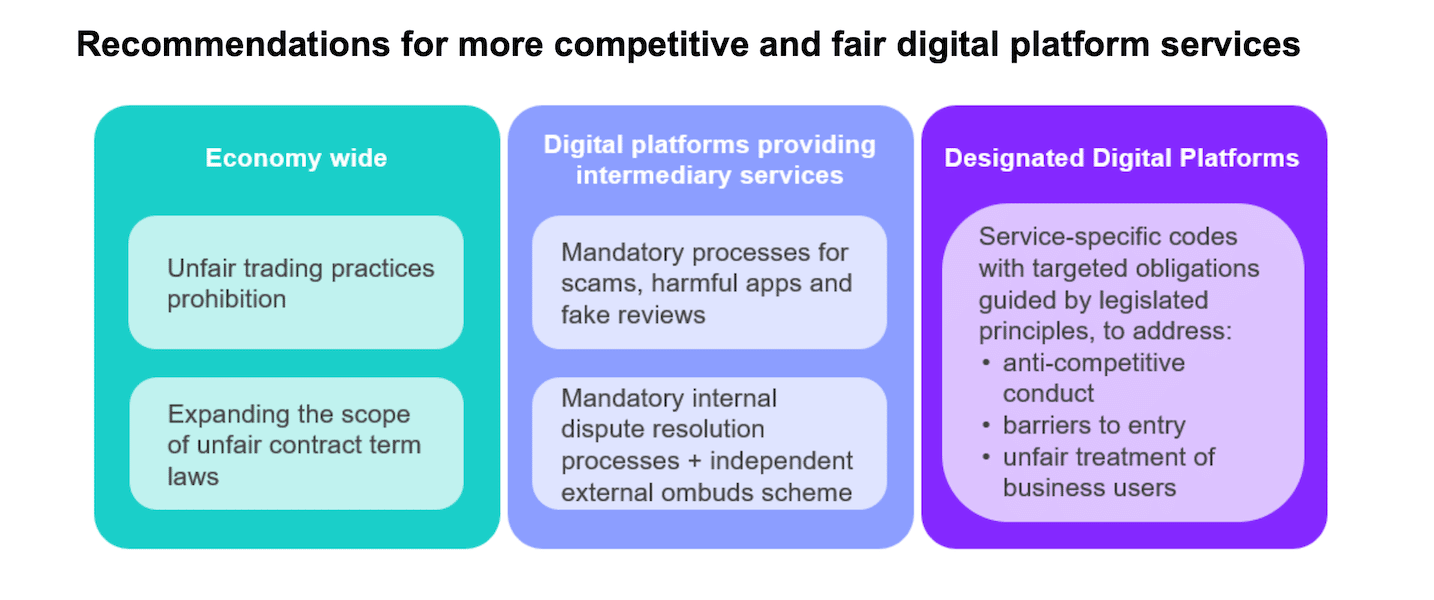Australian Competition and Consumer Commission (ACCC) has published its fifth interim report for the Digital Platform Services inquiry which proposes new measures to address anti-competitive or harmful practices of “gatekeepers” like Apple, Google, Amazon, Meta, and other tech giants which provide search, social media, online private messaging, app stores, online retail marketplaces, and digital advertising services.
The new laws announced by the ACCC could drastically alter Apple’s control over iOS App Store by allowing multiple-app stores on iOS and alternative payment systems, changing the App Store review process, and more.

Apple has been strongly against the demand to open the iOS ecosystem to sideloading like Android by developers and legislators over the past years. The tech company argues that App Store is designed as a barrier between malware and consumers to deliver a safe and secure digital marketplace. Since users save their personal and private data on their iPhones, the device needs the App Store to review all apps to filter malware and offer a safe payment system to prevent scams.
However, critics are not convinced of the tech giant’s reasoning and deem its control of the App Store as anti-competitive for developers and restrictive for consumers. ACCC wrote:
Our analysis has identified significant consumer and competition harms across a range of digital platform services. These include financial losses to scams and unresolved disputes, reduced choice and an inability to make informed choices, reduced innovation and quality, and higher (monetary and non-monetary) prices.
The conduct causing these harms is widespread, entrenched, and systemic. However, enforcement of existing laws, while important, has proven insufficient in Australia and overseas to address such conduct quickly or effectively, further increasing the risk and magnitude of harm.

ACCC focuses on interoperability and transparency on digital platforms like Apple’s App Store
ACCC’s new laws are aimed at protecting consumers and businesses on digital platforms, therefore, they are presented in two sets of measures.
For consumers, ACCC would require digital platforms to provide enhanced safeguards against scamming apps, especially those apps which use fake reviews and ratings.
- Provide user-friendly processes for reporting scams, harmful apps, and fake reviews, and to respond to such reports (‘notice and action’ requirements) verify certain business users (e.g. advertisers, app developers and merchants)
- Publish review verification processes
- Report on scams, harmful apps and fake reviews on their services, and measures taken to address them
- Meet minimum internal dispute resolution standards. This obligation would be supported by the establishment of a new digital platform ombuds scheme to resolve disputes that cannot be resolved via internal dispute resolution processes.

For businesses, the regulatory authority would obligate the digital platforms to fulfill the following requirements:
- Pevent anti-competitive self-preferencing, tying and exclusive pre-installation
- Address data advantages
- Ensure fair treatment of business users
- Improve switching, interoperability and transparency.
ACCC previous interim report published in 2021 found that Apple and Google faced very little competition in the digital platforms and primarily they compete with each other. Therefore, both companies’ forcing developers to abide by their rules was anti-competitive and needed to be regulated.
Read More:
- Apple faces lawsuit over collecting users’ App Store data
- Apple to globally roll out 10-minute limit for AirDrop ‘Everyone’ option in 2023
- Apple still years away from developing search capabilities on par with Google’s
- Google allows Spotify to test “user choice billing” payment system, will Apple follow suit?